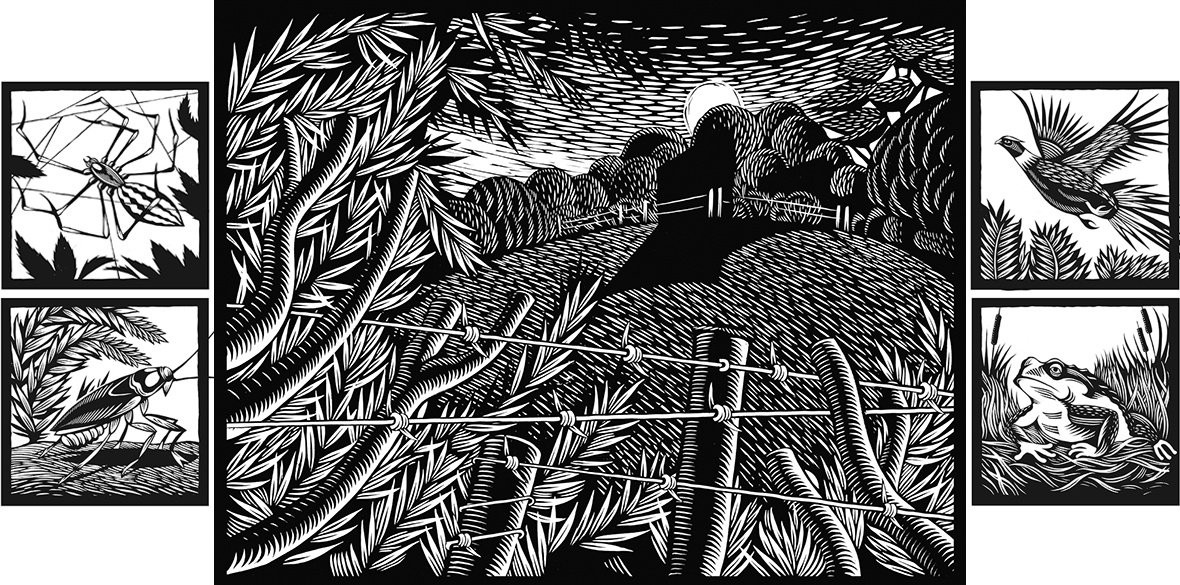This is the last article you can read this month
You can read more article this month
You can read more articles this month
Sorry your limit is up for this month
Reset on:
Please help support the Morning Star by subscribing here
The Book of Trespass: Crossing the Lines that Divide Us
by Nick Hayes
(Bloomsbury, £20)
THIS is a book that will warm the heart of any nature lover who’s spent their time wandering in woods and over countryside where they’re “not supposed to.”
In Britain, many of the best places for observing nature are still in private hands but who would ever accept the fact that rich individuals can own land and keep others out? As Woody Guthrie so memorably put it, from coast to coast: “This land is your land, this land is my land.”
In this book, nature lover and trespasser Nick Hayes celebrates the right of everyone to enjoy our countryside and he’s illustrated it with his own evocative woodcuts. A lifelong trespasser and campaigner for access, he’s also an author, journalist, illustrator, printmaker and political cartoonist.
In The Book of Trespass, he takes us on an expansive journey over the walls and fences of England into the thousands of square miles of rivers, woodland, lakes and meadows blocked to the public.
By trespassing on the land, he takes us on a roller-coaster ride through history and demonstrates how the large estates and mansion houses that dominate our landscapes have been acquired by enslaving and robbing the poor over centuries.
He also offers a passionate defence of the natural world and questions the long-held orthodoxy that ownership of large tracts of land should come with the right to exclude others.
The vast majority of England is out of bounds and the law of trespass makes us strangers in our own country, excluded from 92 per cent of the land and 97 per cent of our waterways. Behind these crass statistics lies a story of enclosure, exploitation and dispossession of public rights.
Hayes’s investigation into the history of land ownership reveals shocking facts, interwoven with the stories of ravers, gypsies, poachers, witches, migrants, ramblers, naturalists and protestors. His book is an example of nature writing at its best but it has real political bite.
The enclosure of the English commons began with William the Conqueror in 1066. He claimed ownership of the whole country, before gifting slices of it to his cronies, the successors of whom still own large swathes.
We are all still subject to its repercussions. Fifty per cent of the land is owned by only 36,000 people — under one per cent of the population. Today there are 117,800 miles of public footpath in England, only half that of a hundred years ago.
It is not just a question of ownership but also how the land is used and stewarded for future generations.
Since the 1930s, 97 per cent of wildflower meadows and 99 per cent of fenland has been destroyed and only 10 per cent of England has woodland cover. Nature is being decimated by those who claim ownership and stewardship of it.
We are still living in a world where property and ownership, for the rich at least, is sacrosanct. The “crime” of trespass has been made even more heinous since the 1994 Criminal Justice Act which created the new crime of “aggravated trespass.”
All the more reason to buy his book, it’s one to relish and learn from. Long live all trespassers.











